International
Nobel Prize winner Óscar Arias: Maduro leads a “narco-state” and it is difficult for him to surrender power
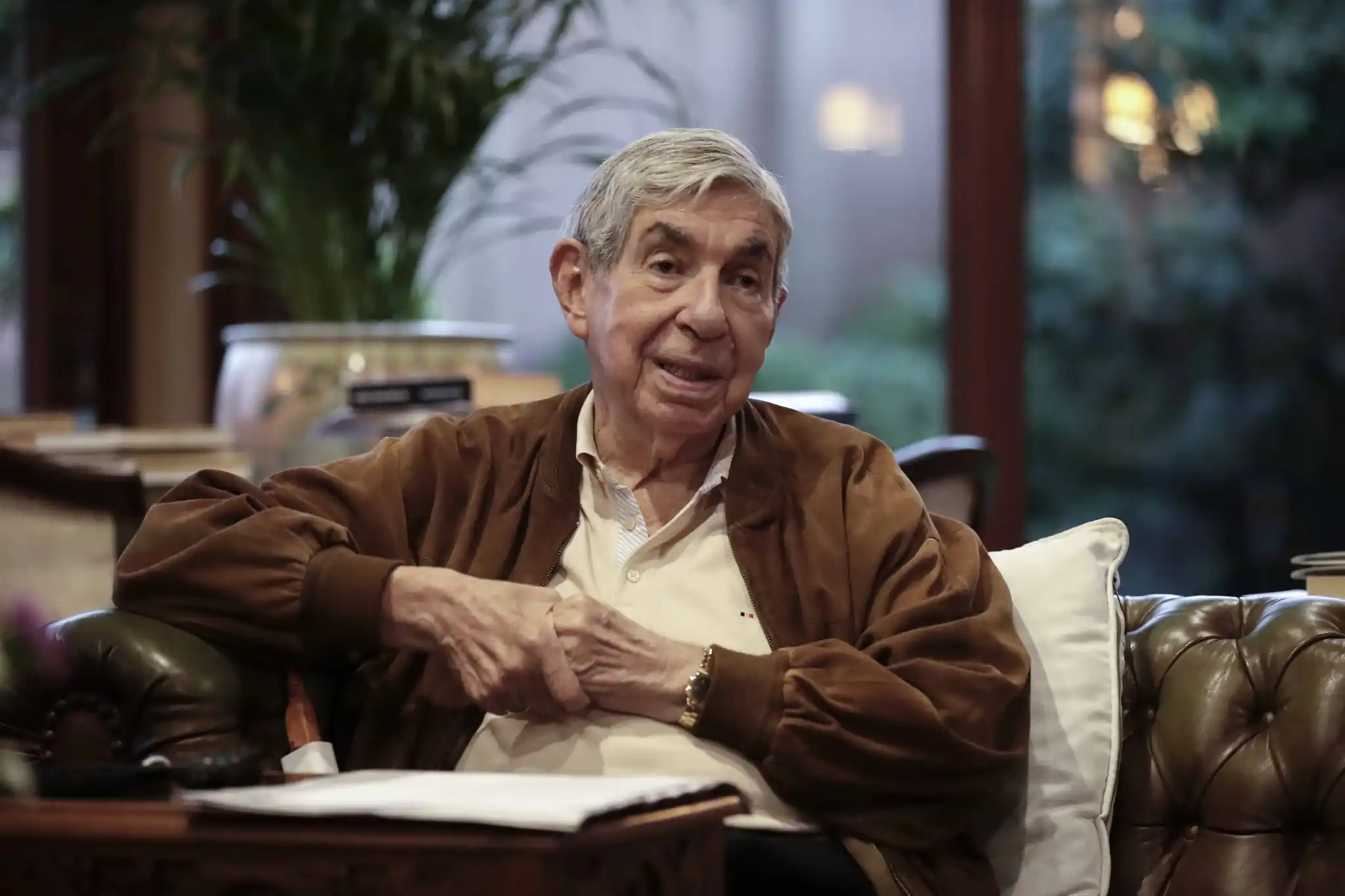
The former president of Costa Rica and Nobel Peace Prize winner, Óscar Arias, said in an interview with EFE that the Venezuelan president, Nicolás Maduro, leads a “dictatorship” and a “narco-state,” so he considers it difficult for him to hand over power.
“I feel very sad but it hasn’t been something I wouldn’t have imagined. It’s not a surprise. I anticipated it because the dictators do not know how to move away from the presidential chair and, in addition, there is something very peculiar about the Government of Venezuela, and that is that it is a narco-state,” Arias said.
The 1987 Nobel Peace Prize assured that the elections of last July 28 in Venezuela were “a farce” in which Maduro “stole” the triumph and the Venezuelan people do not “deserve” that.
“The Venezuelan people deserve the government to be handed over to the winner but, unfortunately, I am very skeptical. It is not easy for a narco-state, knowing that they are going to rot in a dungeon, to hand over power,” Arias said.
The president of Costa Rica, who ruled between 1986 and 1990 and between 2006 and 2010, considered that it is “difficult” for Maduro to leave power, but that he still hopes that the situation may change because “putting Venezuela to produce is impossible with a dictatorship like the one that Maduro has.”
“Unfortunately what is going to happen with six more years of Maduro is that that people, already miserable, suffering from hunger, are going to become more and more impoverished. It is impossible, with that ideology that the Chavistas have, to be able to take out (before) that country, think about foreign investment, domestic investment, that they can diversify the economy, end inflation,” he said.
Arias, 83 years old, regretted that Mexico, Colombia and Brazil have not been so blunt when referring to the Venezuelan elections, although he clarified that it may be understandable if their intention is to be mediators.
“I thought that Mexico, Colombia and Brazil were going to tell Maduro: ‘your choice was a robbery, you stole the election of the Venezuelan people disrespecting the will of that people expressed at the polls, you committed a fraud that cannot be hidden’, but I was wrong, they didn’t do that. I understand that if the role is to mediate, they don’t have to be so blunt,” he said.
Arias assured that in advance all the polls gave as the winner the opponent Edmundo González, supported by the leader María Corina Machado, in a context in which there is “a very great discontent” with the Maduro Government and Chavismo, in general.
“The rulers of Venezuela, (Hugo) Chávez (already deceased) and Maduro have done a lot of damage. In Venezuela, killing a person is called homicide, but starving an entire people is called Chavismo and that’s what has happened. The best example is that more than 7 million Venezuelans have left (emigrated),” he said.
The Government of Venezuela denounced on Thursday to ambassadors that the electoral records released by anti-chavism are false and intend to “ignore the results” of the presidential elections, in which the electoral body ratified Nicolás Maduro as the winner, a victory questioned inside and outside the country.
For its part, the largest opposition coalition, the Democratic Unitary Platform (PUD), disclosed on a website “83.5%” of the electoral acts that, they insist, demonstrate the triumph of its candidate, Edmundo González Urrutia, something that the Government of Venezuela rejects when considering that they are “forged documents.”
The Venezuelan Prosecutor’s Office announced last Wednesday an investigation for “conspiracy” and other crimes on the website where the majority opposition disclosed the minutes of the presidential elections.
The National Electoral Council (CNE) has not published the minutes that certify Maduro’s victory, as indicated by the legal regulations, and left in the hands of the Supreme Court of Justice (TSJ) the process of “certification” of the official result, at the request of the president.
Former President Arias said that “for a long time” there are no independent institutions in Venezuela, since they all respond to Maduro’s orders.
International
Sheinbaum highlights anti-drug gains after U.S. says challenges remain
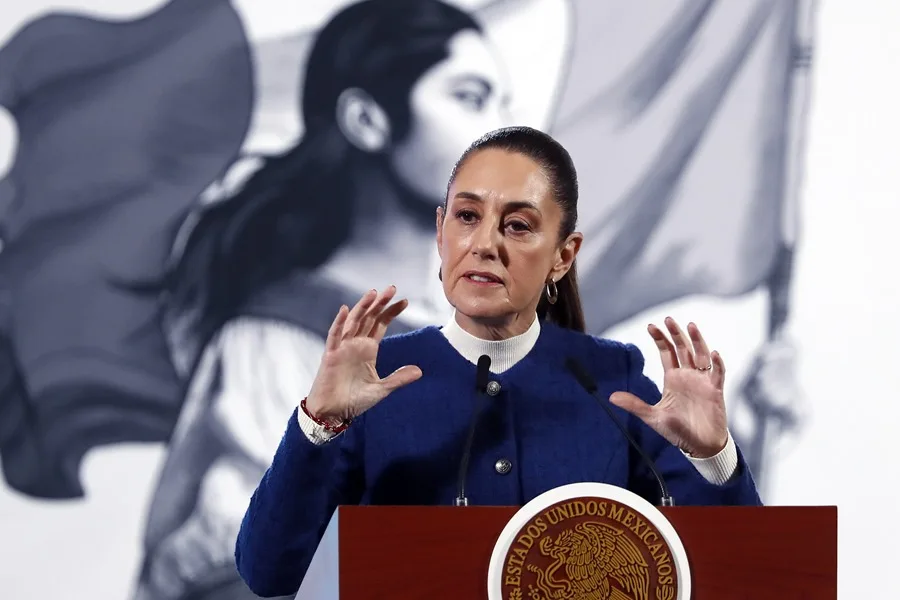
Mexican President Claudia Sheinbaum on Friday highlighted her government’s achievements in the fight against drug trafficking, after the United States said challenges remain in combating organized crime.
On Thursday, Mexican Foreign Minister Juan Ramón de la Fuente held talks with his U.S. counterpart, Secretary of State Marco Rubio. Following the meeting, the U.S. State Department said in a statement that “despite progress, challenges still exist” in addressing organized crime.
“There are very strong results from joint cooperation and from the work Mexico is doing: first, a 50% reduction in fentanyl seizures at the U.S. border,” Sheinbaum said during her regular morning press conference.
The president also said that authorities have seized nearly 320 tons of drugs and that there has been a “40% decrease in intentional homicides in Mexico” since the start of her administration on October 1, 2024.
Sheinbaum added that the United States should implement campaigns to reduce drug consumption within its territory and curb the flow of weapons into Mexico.
“There are many results and there will be more, but there must be mutual respect and shared responsibility, as well as respect for our sovereignties,” she said.
On Monday, Sheinbaum held a phone call with U.S. President Donald Trump to discuss security issues. She said she once again ruled out the presence of U.S. troops in Mexico to fight drug cartels.
Security has been a recurring issue used by Trump to threaten tariffs on Mexico and to pressure negotiations over the USMCA (T-MEC) free trade agreement, which are scheduled for 2026.
The agreement is crucial for Mexico’s economy, as about 80% of the country’s exports are destined for the United States.
International
Canada accuses Iran of killing its citizen during anti-government unrest
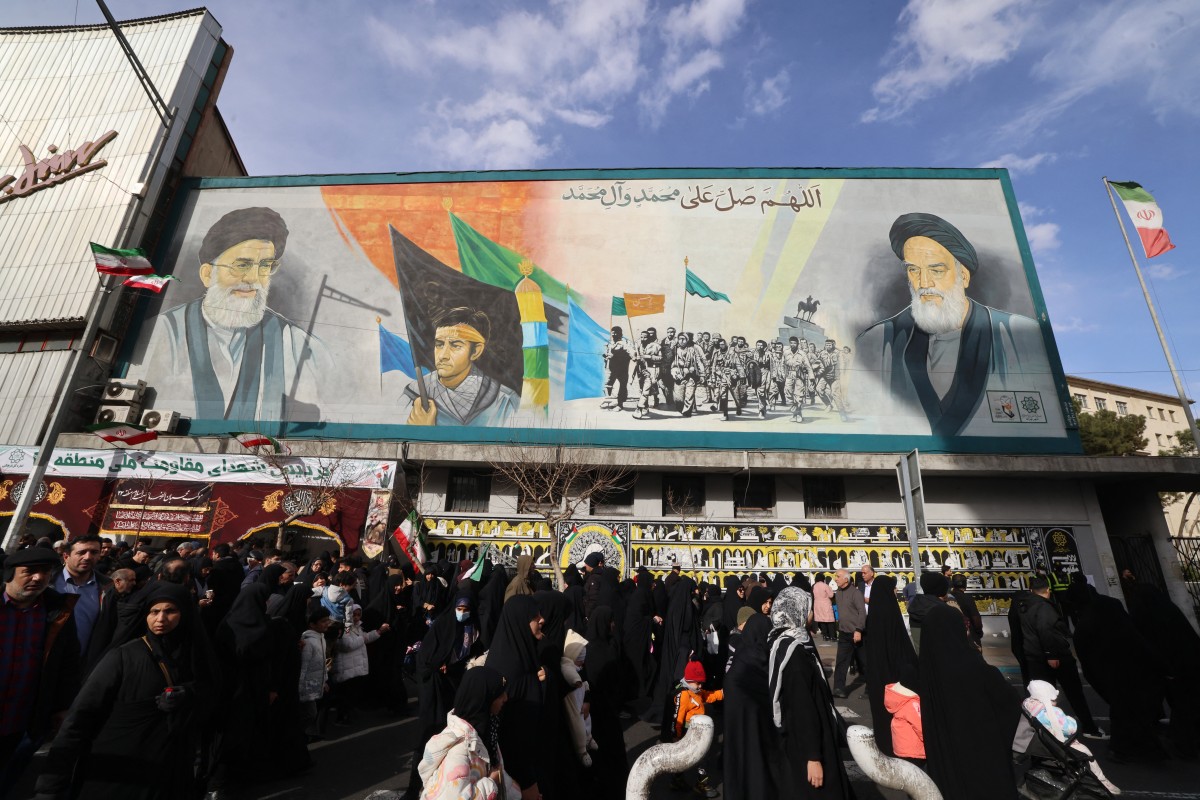
A Canadian citizen has died “at the hands of Iranian authorities,” the Canadian government said on Thursday, amid ongoing protests against the government in Tehran.
“I have just learned that a Canadian citizen has died in Iran at the hands of Iranian authorities,” Canada’s Minister of Foreign Affairs, Anita Anand, said, without providing further details. She added that Tehran’s response to what she described as “peaceful protests” has “led the regime to show a blatant disregard for human life.”
On Thursday, the United States imposed sanctions on Iranian security officials and individuals linked to the country’s banking networks, accusing them of orchestrating a violent crackdown on peaceful demonstrations and laundering billions of dollars in oil revenues. U.S. Treasury Secretary Scott Bessent announced the measures following what were described as the largest anti-government protests in the history of the Islamic Republic, although demonstrations have reportedly eased in recent days amid heavy repression and a near week-long internet shutdown.
“The United States stands firmly with the Iranian people in their pursuit of freedom and justice,” Bessent said in a statement, adding that the sanctions were imposed at the direction of President Donald Trump.
Those sanctioned include Ali Larijani, secretary of Iran’s Supreme National Security Council, whom Washington accused of coordinating the repression and the use of force against protesters.
International
Ukraine declares nationwide energy emergency amid russian attacks and extreme cold
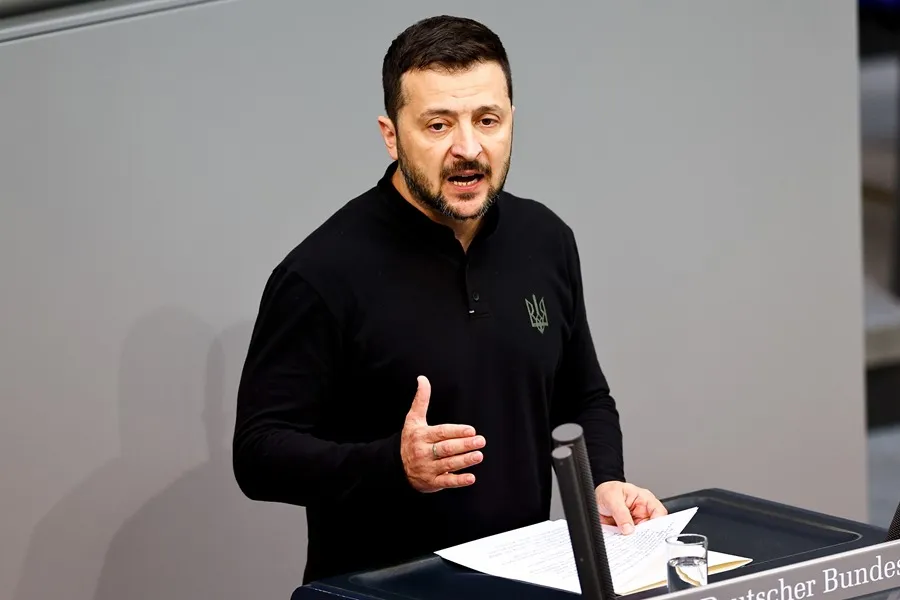
The Ukrainian government on Wednesday declared a nationwide energy state of emergency amid continued Russian military attacks and extreme winter weather, with nighttime temperatures dropping as low as minus 18 degrees Celsius.
“The consequences of Russian attacks and worsening weather conditions are severe (…) Overall, a state of emergency will be declared for Ukraine’s energy sector,” Ukrainian President Volodymyr Zelensky said in a statement posted on social media following a meeting with senior officials.
Zelensky announced the creation of a “permanent coordination headquarters” to manage the crisis in the capital, Kyiv, and tasked former defence minister and current energy chief Denys Shmyhal with overseeing support efforts for affected individuals and communities, including addressing power outages, heating shortages and other “practical issues.”
“There are many problems that require urgent solutions,” the president said, noting that repair crews, energy companies, municipal services and the State Emergency Service are working “around the clock” to restore electricity supplies. Kyiv has been particularly affected after Russian strikes last Friday disabled key parts of the power grid, as daytime temperatures hover around minus 12 degrees Celsius and plunge to minus 18 at night.
Zelensky added that public authorities will “maximize efforts with partners to obtain the necessary equipment and additional support,” while the government will ensure “maximum deregulation of all processes” to speed up the connection of backup power equipment to the grid. He also confirmed that work is underway to significantly increase electricity imports into Ukraine.
The Ukrainian leader further instructed his Cabinet to review curfew regulations in light of the extreme cold, arguing that citizens must have the greatest possible access to assistance centers, while businesses should be given flexibility to plan their operations according to the state of the energy system.
-

 International4 days ago
International4 days agoDeadly van accident near Brazil border leaves 11 dead in Bolivia
-

 International4 days ago
International4 days agoU.S. to host Danish and Greenlandic Foreign Ministers at the White House
-

 Central America4 days ago
Central America4 days agoU.S. and El Salvador maintain close partnership, embassy says
-
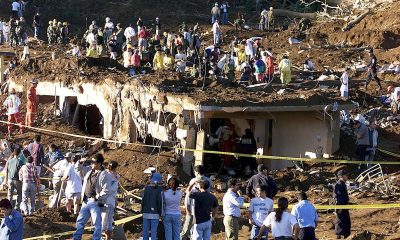
 Central America4 days ago
Central America4 days agoTaiwan’s $10 million donation after 2001 earthquakes allegedly diverted in El Salvador
-
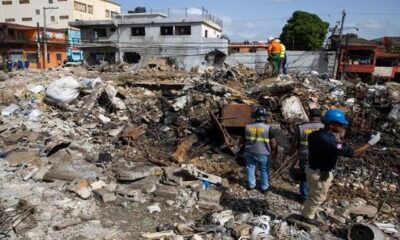
 International4 days ago
International4 days agoDominican court postpones hearing in deadly nightclub collapse case
-

 International4 days ago
International4 days agoPolice hunt gunmen after fatal shooting in Corsica
-
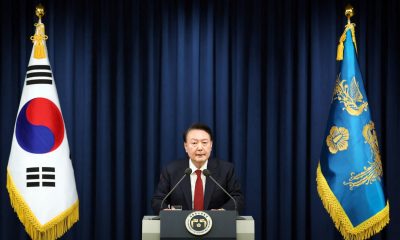
 International4 days ago
International4 days agoEx-President accused of bid to establish dictatorship as verdict nears in South Korea
-

 International4 days ago
International4 days agoVenezuelan opposition leader dedicates Nobel Prize to Trump
-
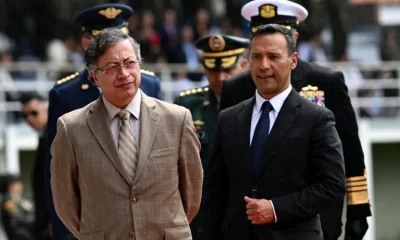
 International3 days ago
International3 days agoColombian Defense Chief Meets U.S. Officials to Advance Bilateral Narcotics Strategy
-

 International2 days ago
International2 days agoIran closes airspace amid U.S. threats and deadly nationwide protests
-

 International2 days ago
International2 days agoUkraine declares nationwide energy emergency amid russian attacks and extreme cold
-
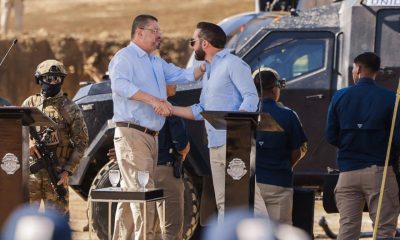
 Central America2 days ago
Central America2 days agoBukele warns crime can become a ‘parallel government’ during visit to Costa Rica
-
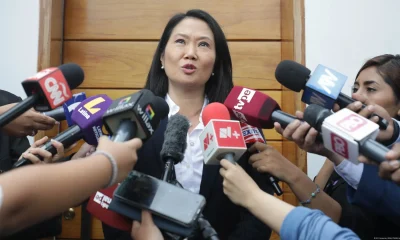
 International3 days ago
International3 days agoPeruvian Court Orders Definitive Dismissal of Money Laundering Case Against Keiko Fujimori
-

 International2 days ago
International2 days agoX moves to block Grok from creating sexualized images of real people amid legal scrutiny
-
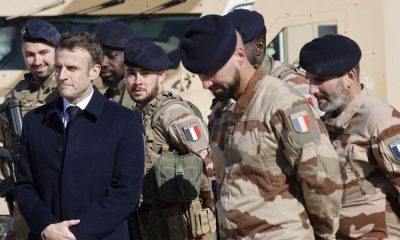
 International2 days ago
International2 days agoFrance joins Denmark’s ‘Operation Arctic Resistance’ in Greenland amid U.S. tensions
-
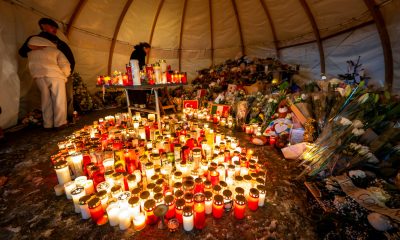
 International2 days ago
International2 days agoSwiss Canton of Valais Grants Emergency Aid to Victims of Crans-Montana Bar Tragedy
-

 International2 days ago
International2 days agoU.S.–Denmark tensions escalate as Trump pushes NATO to back U.S. claim on Greenland
-
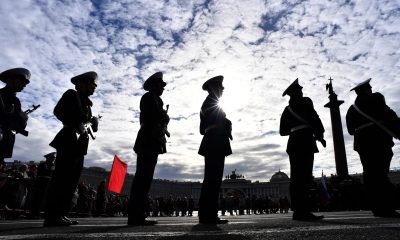
 International2 days ago
International2 days agoUK Intelligence estimates russian casualties in Ukraine at over 1.2 million
-

 International2 days ago
International2 days agoU.S. to suspend visa processing for applicants from 75 countries
-

 International2 days ago
International2 days agoHillary Clinton skips Epstein inquiry as house panel threatens contempt charges
-
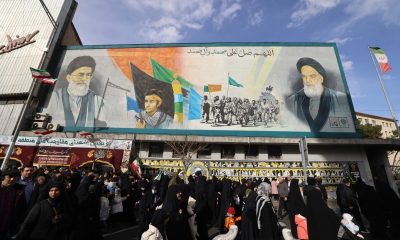
 International13 hours ago
International13 hours agoCanada accuses Iran of killing its citizen during anti-government unrest
-

 International13 hours ago
International13 hours agoSheinbaum highlights anti-drug gains after U.S. says challenges remain


























